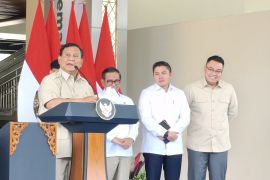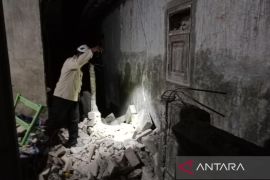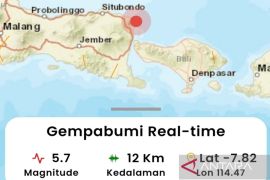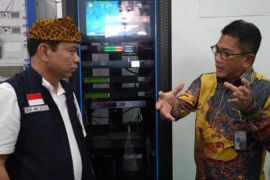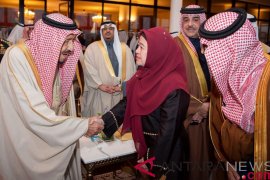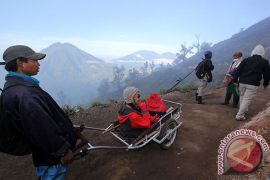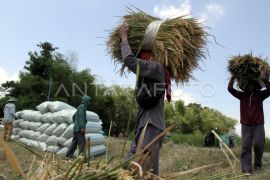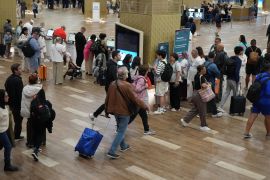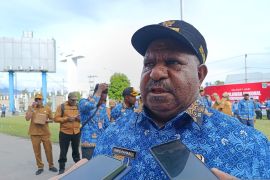SRI is a cultivation technique with different system of cultivation, soil management, irrigation and use of chemical elements.
"The system would be used in 2,500 hectare of rice fields in the district in 2015," head of the district agriculture, forestry and plantation office Ikrori Hudanto said here on Sunday.
The program will cost around Rp4 billion with fund from the central government, Ikrori said, adding the assistance was given after seeing the success of the program in Banyuwangi.
He said currently there are 59 groups of farmers in 18 sub-districts taking part in the program of expanding the new system of cultivation.
"The result has been encouraging as the farmers have enjoyed an increase in productivity," he said.
Chairman of a farm group in the village of Sumber Agung, in the sub-district of Pesanggaran, Nyono Subagio, said his group succeeded in recording a 37 percent in increase in rice production to 8.3 tons per hectare from 6.1 tons earlier.
Nyono said the increase was recorded after applying the new system of cultivation.
He said there are more benefits from the use of SRI including the cost being lower as it needs less seeds.
He said normally under conventional system a hectare would need 50 kg per hectare but SRI system needs only 5 kg per hectare.
In addition harvest time comes earlier, and the crop needs less water, he added.
The technology is environmentally friendly as it uses no chemical. The fertilizers are compost a mixture of decaying plants and manure and local micro organism.
"Therefore, we dont depend on supply of chemical fertilizers from factory as the organic fertilizers we need are locally available. The materials for fertilizer and pesticide are available free in abundance," Nyono said.
He said with the system the soil recovers its fertility through ecological recycling and at the same time the environment will be well protected.
District Head Abdullah Azwar Anas expressed pleasure saying the success constitutes a step forward to strengthen the countrys food security .
Abdullah called on the private sector to take part and contribute to the expansion of the program as the government has limited capacity.(*)
Editor: Heru Purwanto
Copyright © ANTARA 2015

